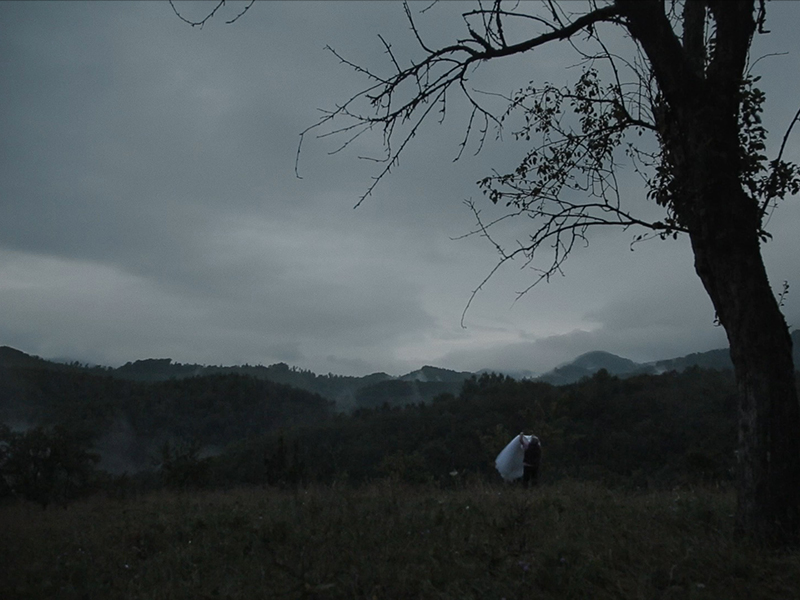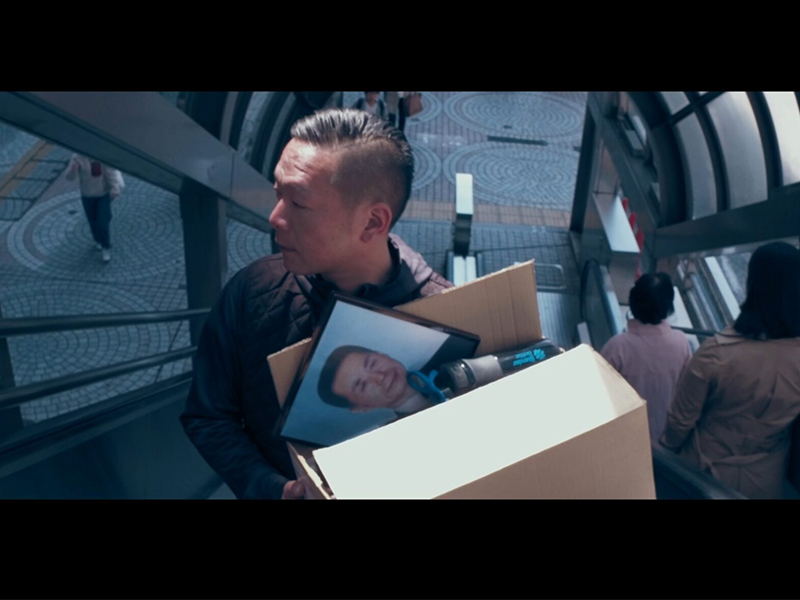Astra FF 2021. Kodokushi & Post Mortem Berlin. The ferrymen of the dead
Two film sequences that I saw at Astra FF came close to my heart: the first, in “Then Comes The Evening”, with a grandma that walks her wedding dress up to the highest tree on a hill, where she lets it sway in the wind while begging the clouds to run dry, in order to save the crops from destruction. The second one is a sort of anti-shamanism, in “Kodokushi”; a lone elderly man who promises to recount all the prayers that he knows so it doesn’t rain on the day in which he hopes that he will meet his family again, sitting on a blanket and finally having a chance to play with his niece. I thought of all the magic tricks and superstitions that passed in front of my eyes, during my childhood, but none of them had this kernel made of pure love – what does it even truly mean for the rain to come after you’ve insistently called for it? Or the opposite? These films pull together the idea that the loneliness of elderly people has something metaphysical in its essence, that lone people have secrets which they only share with God Almighty; and then, there is the way in which we appreciate the act of death, be it as a definitive experience, be it as the start of a new journey.

In some of the films presented at Astra FF, I discovered a red thread that connects Japan to Lithuania, Serbia to Germany – and that is the act of delaying death or its packaging into something alien from our lived experience; the change in ritual, the change in customs. In I’ll Stand By You (dir. Virginija Vareikyte, Maximilien Dejoie), we follow a police brigade that is specialized in suicide prevention, two upbeat women who shine their lights on the days of lonely people, sharing kind words or sending gifts, the least they can do to make them forget their problems. On the other end of the spectrum, Korokushi (dir. Ensar Altay), the remedy for the same ailment is an absurd recipe, in the vein of The Lobster, where lonely people come to socialize in coffeeshops meant for pairs, where they are seated at the same table and invited to talk to each other, to at least trick themselves into thinking that they’re okay. In both cases, these solutions are but temporary remedies, they cannot be an Ersatz for the family which no longer can (or wants to) be present. At the end of the spectrum, Post Mortem Berlin (dir. Anton von Heiseler) is an observational documentary that redefines the idea of a final journey. In a robotic crematorium, the director places the camera at the end of a coffin and plunges it in a pit of iron and fire, from one escalator to another; it’s as if you would leave your fate in the hands of robots and would end up entering their own dimension. Set this face to face with Romanian rituals and wailing mourners – there are no human presences here anymore, and if a person appears at times, they come with the adjustments (they place a glass barrier, sort the urns out, move a pallet truck around and so on).

What’s truly innovative is that both Kodokushi and Post Mortem Berlin discuss the physicality of death, and not about the journey into the abyss. In both cases, the boatman doesn’t exist or is replaced (in the first, the peace of those who’ve passed away is granted by a generous man who is always trying to bring the departed’s objects to their families, but they all refuse to receive them, so he ends up keeping them in his home, to his mother’s dread; in the second, the guide is the android itself). Then again, Kodokushi is plainly naturalistic – Altay insists on the details of the experts’ pseudo-reenactments, on dusty and moldy objects, on putrefying mattresses. The hard shell encasing Post Mortem is also broken by the sequence in which the defunct is moved from one coffin to another, and the camera glimpses at him from a distance. The fear of death is very much touched by the absurd – for example, the Japanese have a universal sign that means “I am not dead yet, I am fine”: they pick up their correspondence on a daily basis and leave the window open. If none of the two gestures are accomplished over the course of a week, their neighbors sound the alarm; they start to sniff the doors to their apartments. At the same time, if a family member is invited to tea, they politely refuse it – there is no time for pleasantries, everything is discussed on the doorstep.

There is a visible trap in these films, and that is their fault of overcrowding narrations which are already too full with even more meaning: to push too hard on the personal lives of those who offer comfort, or to artificially trace a series of diagonals (be it their own fear of death, or their attempt to run away from it by helping others). It’s not the aesthetic terrain where these films seem to achieve excellence, but through their very act of approaching this topic, which opens up just as many unexpected situations, which the filmmakers have the good intuition to follow and record; take, for example, the old man who shows up with a plastic bag at his meeting point with the stranger – he quaintly takes a seat, listens to the surrounding gossip and, feeling inadequate and disturbed, leaves to feed some pigeons.
Journalist and film critic, with a master's degree in film critics. Collaborates with Scena9, Acoperișul de Sticlă, FILM and FILM Menu magazines. For Films in Frame, she brings the monthly top of films and writes the monthly editorial Panorama, published on a Thursday. In her spare time, she retires in the woods where she pictures other possible lives and flying foxes.
